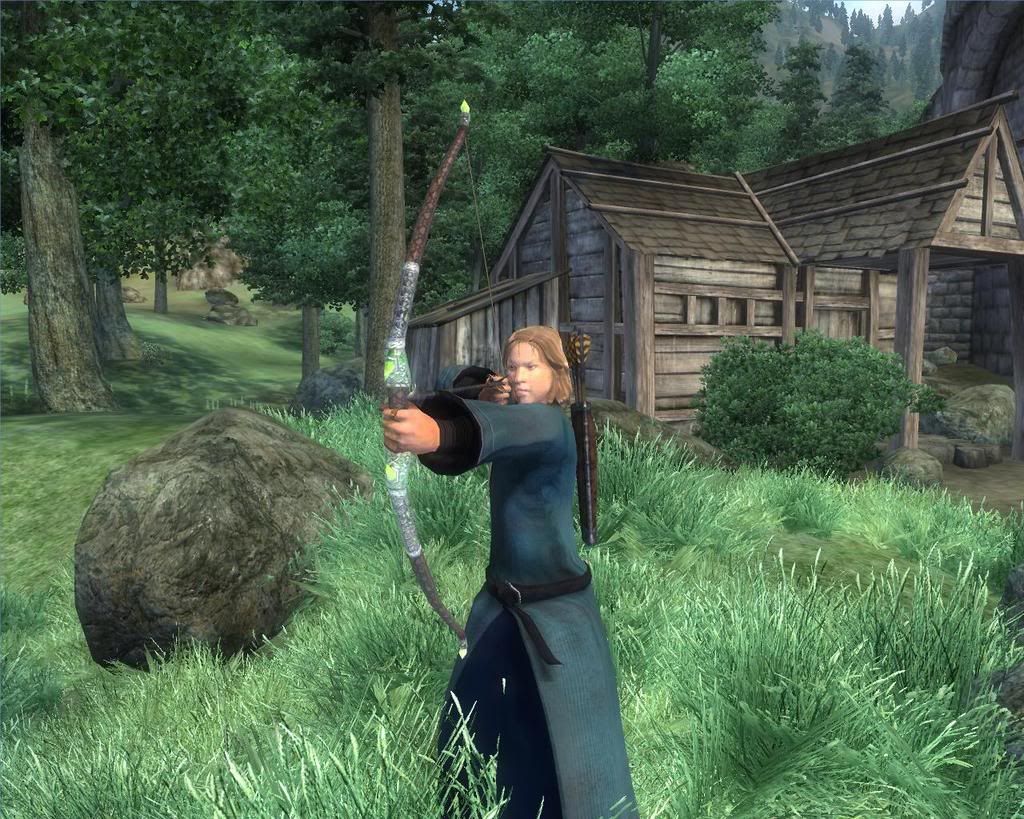I had an interesting experience in Oblivion with regard to difficulty. I found that my favorite thing to do in that game is to sneak through the shadows and snipe enemies with my bow. But in order for it to truly feel like sniping (one-hit kills), I had to lower the difficulty. So I was in the peculiar position of preferring low difficulty when fighting with a bow and preferring high difficulty when fighting with a melee weapon.

Oblivion offered admirable control to players by creating a difficulty slider with more than three or four settings. But what would be even more appreciated is player control over specific aspects of difficulty.
This isn't a new concept, of course. Long ago, Nintendo introduced unlockable cheats which could be toggled to affect difficulty in very specific ways. Goldeneye included a cheat that equipped all enemies with rocket launchers. Many games include cheats for invincibility, infinite ammo, or resource availability (weapons, armor, etc). Perfect Dark 64 brilliantly allowed players to choose the personality types of AI opponents.
I just want to point out that much more could be done here. Make players unlock advanced difficulty controls through completion of gameplay, because you've crafted a carefully balanced experience that they might cheat themselves out of if offered control too early or easily. But there are countless kinds of gamers with different needs and desires. Advanced difficulty controls enable players to make your game more personal, as well as add invaluable replayability.

For example, Oblivion could have included damage sliders for different kinds of weapons (bows, melee, magic). Halo 3 could have included a cheat for kamikaze AI (fearless, constantly charging enemies) or put those terrifying hammers in the hands of more enemies. Fable 2 could include cheats that affect the dog companion's combat effectiveness or AI personality (make him vicious or apathetic to combat), or change how NPCs react to the player's character. Dead Space could let players turn on zero gravity in any area, or offer a "Hell" difficulty mode (ala Diablo 2) with more enemies and stronger weapons.
Changes like these are often simple number-switching... quick and easy to implement as a feature to be toggled on or off. If you could offer a player hours of extra fun with only a few extra hours (if that) of development time, why not do it?

Halo 3 actually did this to a certain extent. Playing with certain skulls activated changed the enemy A.I. For instance, one skull made the enemy spam all their grenades at you, which made the game significantly more difficult.
ReplyDeleteWhy not submit this post to the July round table discussion?
Yes, Halo 3 has some cool cheats. I wasn't knocking it or any other games.
ReplyDeleteThanks for pointing me to the Round Table! That's a great idea.
Great thoughts! :-D I was an Oblivion junkie for awhile but finally gave it a rest. I think an adjustment like you're talking about could bring me back. Might be nice to see a reasonably priced "modular difficulty" expansion pack through LIVE...
ReplyDeleteAllow me second that I too felt that Halo 3's Skulls were an attempt to do just this. My brother and I have had several experimentations with Skull combos and some can be quite fun and some can make it feel almost like an entirely different game.
ReplyDelete